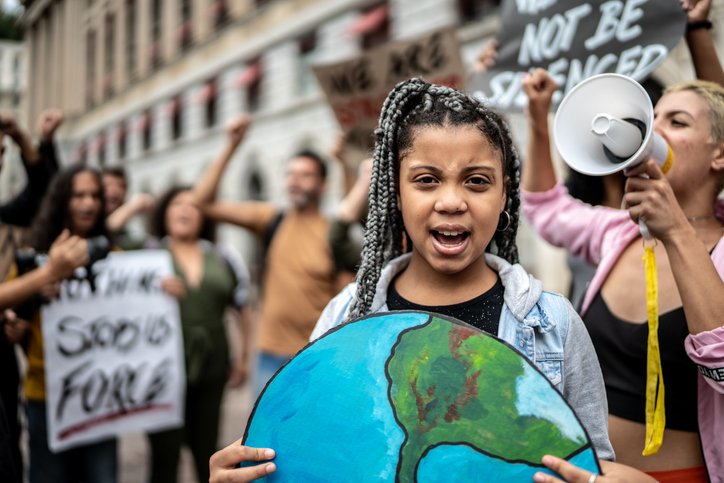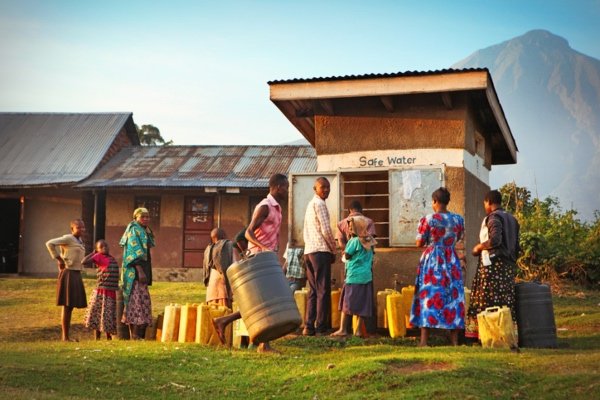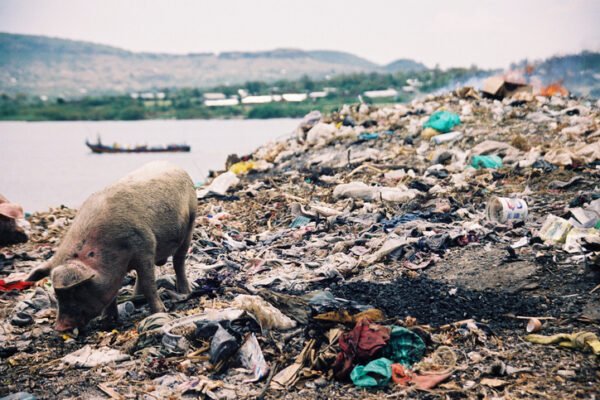Evan cites research that suggests 65% of Americans believe the federal government isn’t doing enough to address climate, yet most nevertheless remain silent on the issue.
‘In fact, an estimated 13 million people who care about the environment do not regularly vote’, he says. ‘Imagine a world in which all of these citizens were vocal about the issues that matter to them, their families and their communities. We would certainly be on track for a brighter future!’
In addition to wielding political clout, individuals have incredible power to force businesses to support sustainable practices and climate action.
‘The environmental destruction caused by the meat and plastics industries, for example, are enabled by the public’s complacency’, Evan says. ‘When lots of individuals decide to make small changes to limit their consumption of goods and services that harm the planet, it adds up to a significantly positive impact.’
If we are to reach the goals we all share, everyone needs to feel empowered to do their bit. When we recognise our own agency it becomes easier to take that next step forward and participate in advocacy, volunteer opportunities and other high-impact actions.
‘We’re all in this together’, Evan says. ‘The barriers to making a difference are much lower than you’d expect, and the benefits are greater than most are aware.’
Invest in Our Planet
For 2023, Earth Day organisers are encouraging everyone to dedicate their time, resources and effort to sustainable solutions that would not only prevent climate catastrophes and ensure human survival, but also lead to a happier, healthier and wealthier future for communities everywhere.
This year’s theme, ’Invest In Our Planet’, is a continuation of the 2022 campaign that saw a surge in meaningful, large-scale environmental action.
Across the globe, countries began enacting policies to end single-us plastics, and in the USA the Inflation Reduction Act was signed into law, marking the largest climate investment of any government policy in history.
The momentum continues for Earth Day 2023, and this year there is a focus on climate finance.
Globally, only about 16% of climate finance needs are currently being met; to meet the goals laid out in the Paris Agreement, the global community needs to collectively commit to ‘Invest In Our Planet’ on a greater scale.
Individuals have also been considering their role in climate finance in the lead-up to Earth Day.
On March 21, thousands of protesters turned up to over 100 events across the US outside branches of JP Morgan Chase, Citibank, Wells Fargo and Bank of America – banks that collectively finance a quarter of the total global fossil fuel industry.
Individuals invest their money to ensure a stable future for themselves; it’s no surprise that there’s a strong call for banks to stop using our money to endanger that future by bankrolling climate pollution.
The future of Earth Day
Evan would like to see Earth Day 2023 unfold with more events happening globally than ever before, with millions upon millions of people turning out in their communities to marches, rallies, protests, cleanups and other volunteer activities.
He’d like notable leaders from the public and private sectors to be inspired to announce new, tangible commitments to Invest In Our Planet.
When night falls on 22 April 2023, Evan hopes we will be closer to a trajectory that makes a 1.5ºC future a reality, and that the world will feel more energised than ever to take on the challenges that will define our era of human civilisation.
‘While all of us in the environmental industry hope to work ourselves out of a job, there will never be a day when Earth Day is no longer needed’, Evan reveals. ‘One day – hopefully by 2050 – we’ll no longer need Earth Day to help prevent ecological catastrophes, but it’s essential that as long as our civilisation remains, we always take time to remember that humanity’s existence is inseparable from the forces of nature.’
‘Earth Day will always be needed as a reminder that we are all part of the same whole’, Evan continued, ‘and that it is our responsibility to care for our one and only home and all who inhabit it.’
Click here to find an Earth Day event taking place near you.
 Play Video about This Rock Might Just Save The World
Play Video about This Rock Might Just Save The World Play Video about Play 2 hours of rock
Play Video about Play 2 hours of rock Play Video about Play 2 hours of brook
Play Video about Play 2 hours of brook Play Video about Play 2 hours of sheep
Play Video about Play 2 hours of sheep















































